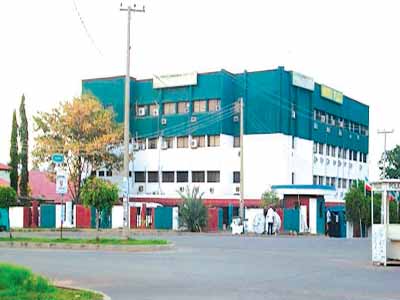The Peoples Democratic Party (PDP) held an emergency National Caucus Meeting on May 26, 2025, at the Bauchi State Government Lodge in Abuja, following the sudden and controversial closure of its national secretariat, Wadata Plaza, by the Federal Capital Territory Administration (FCTA). The high-stakes meeting brought together top party stakeholders and power brokers determined to chart a bold new course for Nigeria’s leading opposition party.
Acting National Chairman, Alhaji Umar Damagum, who led the briefing after the meeting, described the gathering as “crucial to the future of the PDP,” as members tackled the pressing leadership crisis, grassroots mobilization, and electoral strategy ahead of the 2027 general elections.
The issue of leadership transition took center stage. With internal wrangling threatening party cohesion in recent months, Damagum emphasized that the PDP is committed to stabilizing its leadership structure and electing a substantive National Chairman through a transparent and constitutionally guided process. Although a definitive date was not set, Damagum revealed that a National Executive Committee (NEC) meeting would soon be convened to solidify the transition timeline.
Tension soared earlier today when the FCTA sealed off the PDP’s national secretariat due to failure to pay up ground rent for 25 years. The move was met with outrage by the caucus, which condemned it as a politically motivated act designed to destabilize the opposition. Resolutions were passed to pursue legal redress and secure alternative venues to ensure the party’s uninterrupted operations. Damagum assured supporters that the PDP remains unshaken and ready to withstand any form of political intimidation.
The party also announced a renewed focus on grassroots mobilization to restore its deep connection with the electorate. Strategies discussed include rebuilding state and ward structures, energizing the youth and women wings, and revamping internal communication channels. The PDP pledged to counter the APC’s narratives by amplifying its vision for a better-governed and economically stable Nigeria.
With the 2027 elections looming, the caucus assessed past electoral setbacks and set in motion a comprehensive strategy to bounce back. Plans are underway to begin early preparations, including transparent candidate selection, voter education, and coalition-building with progressive allies. Party leaders emphasized that only a united PDP can defeat the ruling All Progressives Congress (APC) and reclaim power at the national level.
The caucus did not shy away from national issues, lambasting the APC-led government for worsening economic hardship, insecurity, and poor governance. The PDP vowed to hold the federal government accountable while championing policies that create jobs, improve security, and deliver affordable healthcare for all Nigerians.
Read also:
- BREAKING: Uncertainty looms as PDP faction led by Wike postpones NEC meeting indefinitely
- Wike announces final takeover of PDP National Headquarters, 4,793 other properties over N6.9 Billion ground rent debt
- Wike revokes PDP Secretariat’s Certificate of Occupancy over 20-year Ground Rent default
Damagum, speaking to journalists, reaffirmed the PDP’s role as the beacon of hope for millions. “The PDP is not just regrouping; we are rebuilding. Nigerians are tired of economic pain and insecurity. The PDP is their best chance for recovery and good governance,” he declared.
Reactions have been swift, with many party faithful applauding the resolutions, especially those aimed at leadership clarity and voter engagement. However, some observers believe that action must follow words, and that unity within the party remains a critical hurdle.
As questions swirl over the FCTA’s motives behind sealing Wadata Plaza, tensions between the PDP and the APC could escalate. The PDP’s decision to fight back legally signals a readiness to confront what it views as deliberate political suppression.
The outcome of the May 26 caucus meeting is already being hailed as a potential turning point for the party. Whether it will mark the PDP’s comeback or another missed opportunity depends largely on how effectively it implements the resolutions made.






